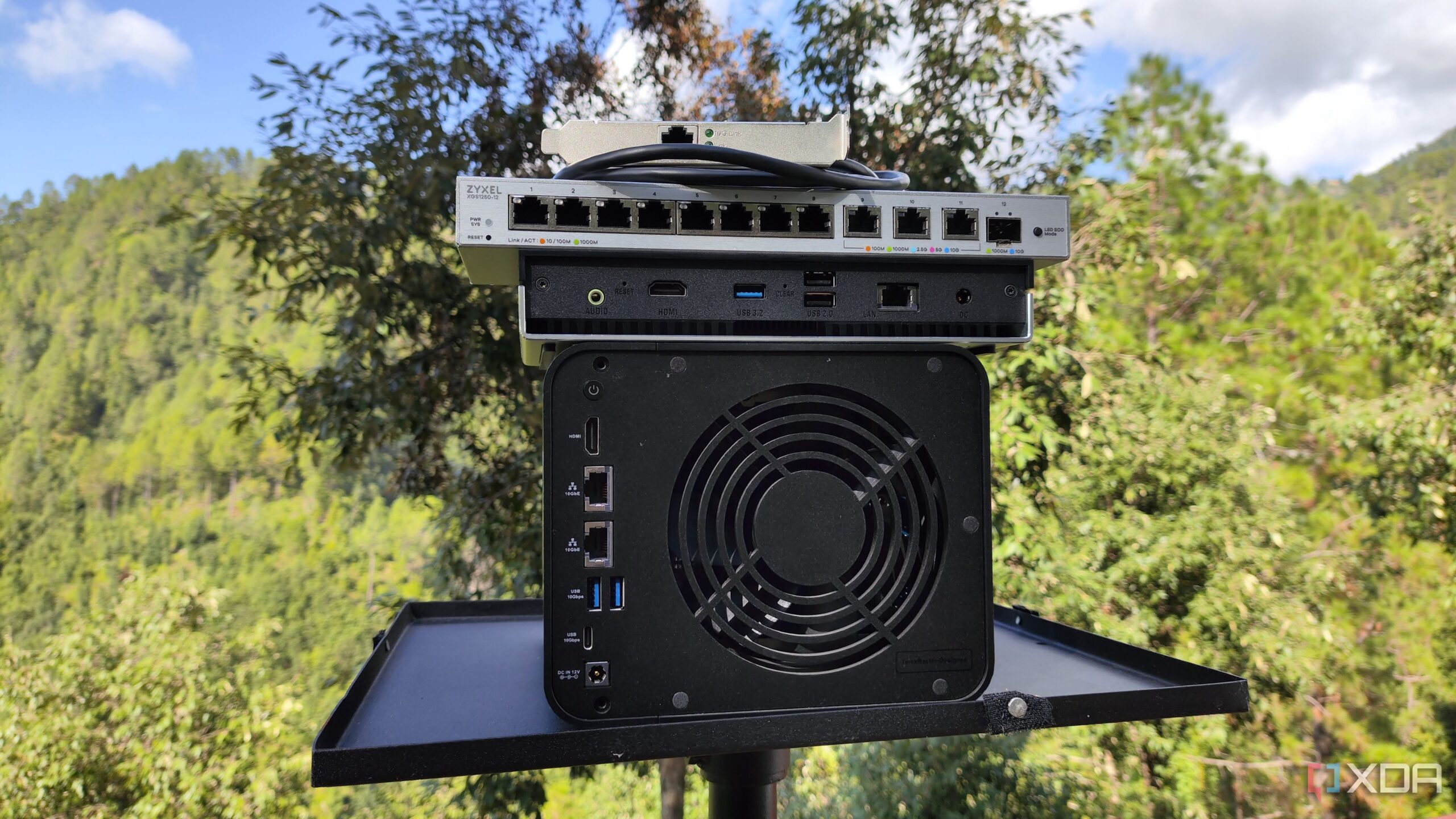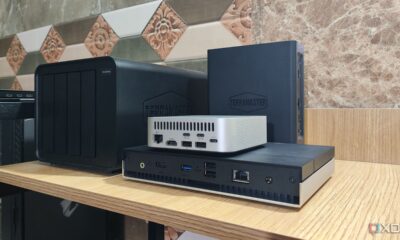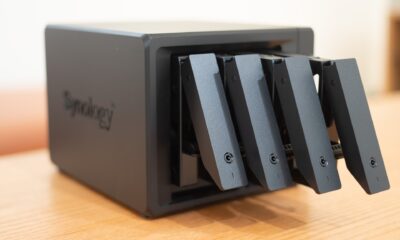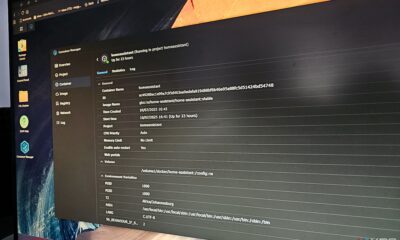Technology
Transform Your NAS into a Powerful Self-Hosting Server Today

Network-Attached Storage (NAS) devices have evolved into multifunctional assets for both casual users and tech enthusiasts. By transforming your NAS into a self-hosting server, you can significantly enhance your data management capabilities. This shift not only streamlines file sharing but also reduces reliance on external cloud services, making it an appealing option for those focused on privacy and data control.
Maximize Storage Potential with Self-Hosting
A NAS offers ample storage for various applications, accommodating the growing need for data management. Popular self-hosting solutions such as Jellyfin for media streaming, Calibre-Web for eBooks, and Immich for photo management require substantial storage space. For instance, surveillance applications like Frigate can generate significant amounts of footage, necessitating a robust storage solution. Many NAS units, particularly those with four bays, provide the necessary capacity to support these applications effectively.
Directly integrating these applications with your NAS simplifies your setup. By hosting services directly on the storage server, users can eliminate the challenges associated with network shares, particularly with protocols like NFS, which can be complex to configure due to permission settings. This direct approach allows for a more streamlined experience when managing critical data.
Efficient Operations with Lightweight Containers
The growing trend of home labs does not require extensive hardware investments. Most NAS systems are capable of running applications in lightweight containers, making them ideal for self-hosting. Unlike traditional virtual machines, containers consume fewer resources, which is beneficial for NAS devices that often operate continuously.
Many NAS operating systems come equipped with built-in app stores or containerization platforms. These features allow users to deploy applications effortlessly, often with just a few clicks. The user-friendly interfaces simplify configuration, enabling users to focus more on functionality rather than technical details.
Another advantage of using a NAS for self-hosting is energy efficiency. Modern NAS units utilize efficient processors that consume less power than conventional home servers. For users who require constant access to their data, running lightweight applications alongside regular backup tasks does not significantly increase energy costs.
With the increasing importance of data management, leveraging a NAS for self-hosting presents a compelling opportunity. By utilizing the storage capacities and operational efficiencies of these devices, users can gain better control over their data while enhancing their overall setup.
In summary, turning your NAS into a self-hosting rig not only maximizes its potential but also provides a cost-effective solution for data management needs. Whether for personal use or more extensive applications, the benefits are clear and increasingly accessible to users around the globe.
-

 Technology4 months ago
Technology4 months agoDiscover the Top 10 Calorie Counting Apps of 2025
-

 Health2 months ago
Health2 months agoBella Hadid Shares Health Update After Treatment for Lyme Disease
-

 Health3 months ago
Health3 months agoErin Bates Shares Recovery Update Following Sepsis Complications
-

 Technology4 weeks ago
Technology4 weeks agoDiscover 2025’s Top GPUs for Exceptional 4K Gaming Performance
-

 Technology2 months ago
Technology2 months agoElectric Moto Influencer Surronster Arrested in Tijuana
-

 Technology4 months ago
Technology4 months agoDiscover How to Reverse Image Search Using ChatGPT Effortlessly
-

 Technology5 months ago
Technology5 months agoMeta Initiates $60B AI Data Center Expansion, Starting in Ohio
-

 Technology4 months ago
Technology4 months agoRecovering a Suspended TikTok Account: A Step-by-Step Guide
-

 Health4 months ago
Health4 months agoTested: Rab Firewall Mountain Jacket Survives Harsh Conditions
-

 Lifestyle4 months ago
Lifestyle4 months agoBelton Family Reunites After Daughter Survives Hill Country Floods
-

 Technology3 months ago
Technology3 months agoUncovering the Top Five Most Challenging Motorcycles to Ride
-

 Technology4 months ago
Technology4 months agoHarmonic Launches AI Chatbot App to Transform Mathematical Reasoning





















